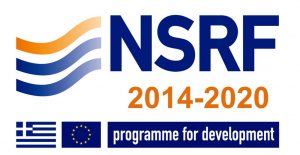

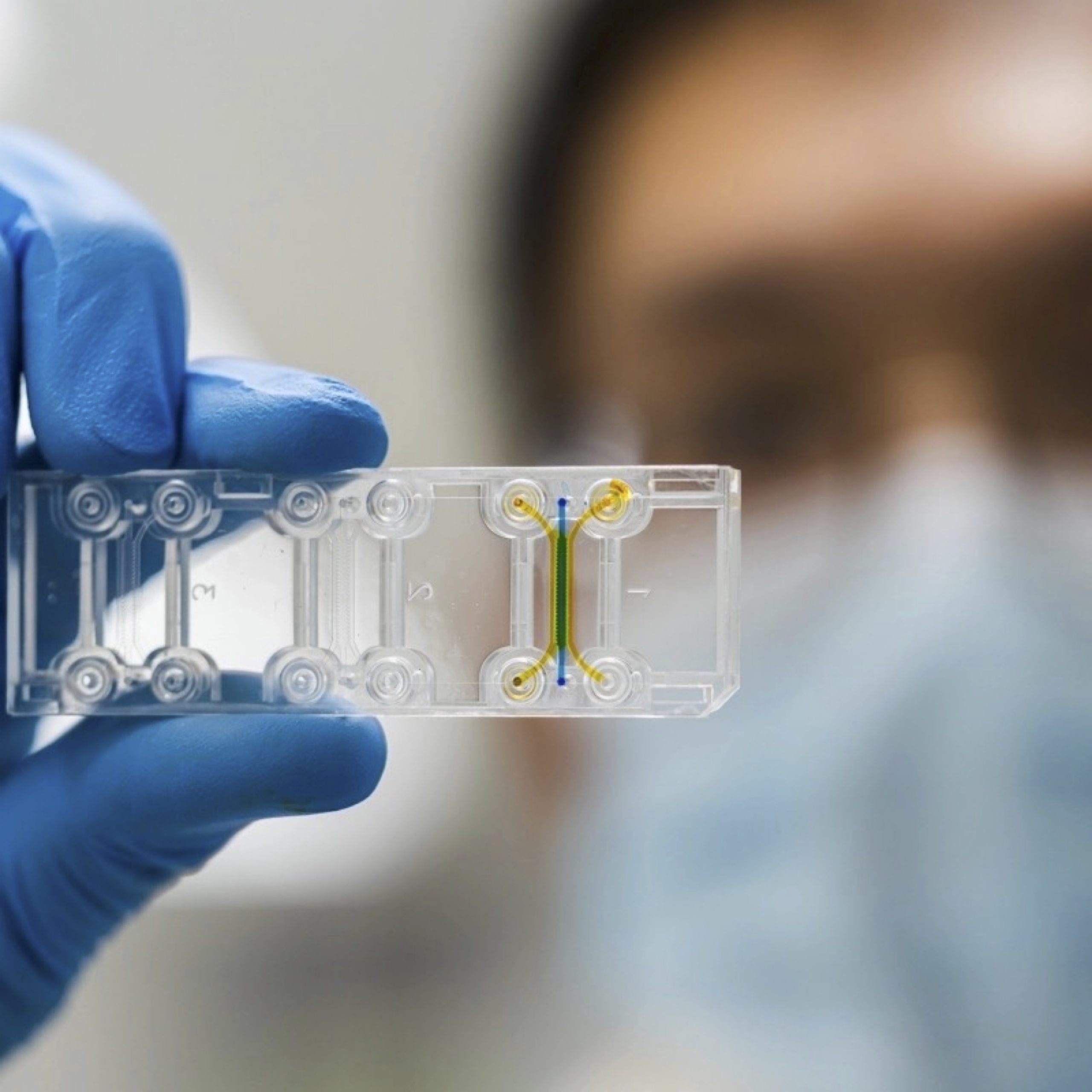
Biomedcode is pleased to announce that, the T2EDK program -development of a bronchoscopic biopsies-on-chip (BioOnChip) platform for immunotherapy drug screening in non-small cell lung cancer- initiated in collaboration with the BSRC Al. Fleming researcher M. Tsoumakidou, the Department of Computer Science and Biomedical Informatics of the University of Thessaly and the Pulmonary Clinic of the University of Ioannina has been financed by the European Union – Next Generation EU and the National Recovery and Resilience Plan Greece 2.0 funds. BioOnChip aims to explore the applicability of an innovative 3D microfluidic microculture, i.e. tumor-on-chip, in predicting real-time responses to PD1-blockade in NSCLC patients, that, if efficient, might have important socioeconomic impact.
The project is implemented within the framework of the National Recovery and Resilience Plan “Greece 2.0” with funding from the European Union – NextGenerationEU

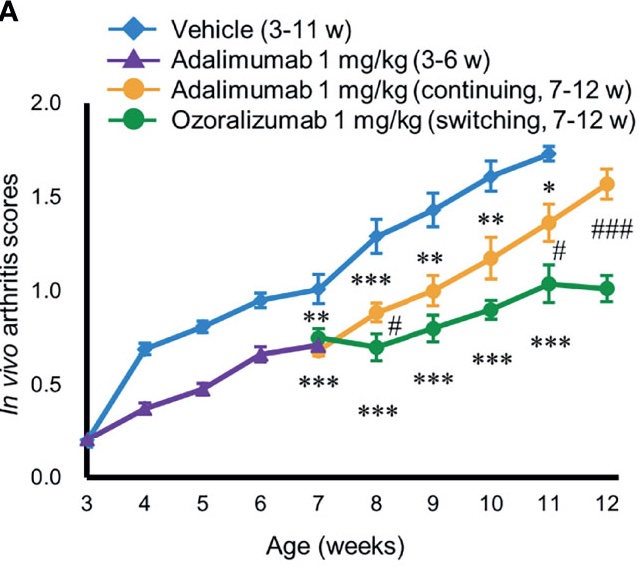
In this recent paper, Ishiwatari-Ogata et all, using the Tg197 mouse model of arthritis, show that Ozoralizumab, a trivalent, bispecific NANOBODY compound offers anti-arthritis efficacy even in the secondary-failure phase.
Published in Frontiers in Immunology 2022 Feb 22;13:853008. doi: 10.3389/fimmu.2022.853008.
Read More
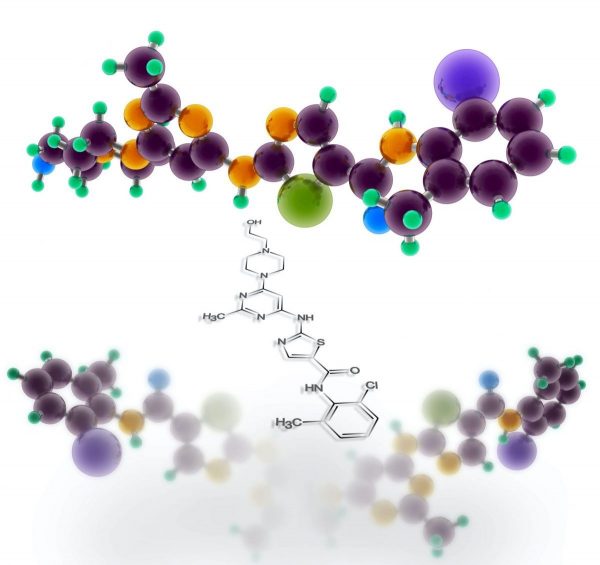
Our paper in Journal of Translational Medicine shows that combination of dasatinib and other kinase inhibitors with a subtherapeutic anti‐hTNF dose effectively treats arthritis pathology.
Published in Journal of Translational Medicine 2021 Apr 23;19(1):165. doi: 10.1186/s12967-021-02764-y.

Biomedcode has been recognized by the Pharma Tech Outlook magazine as one of the top 10 CROs of the year 2020. An interview with Biomedcode’s CEO and CSO is published in this month’s special edition on Europe’s CROs.
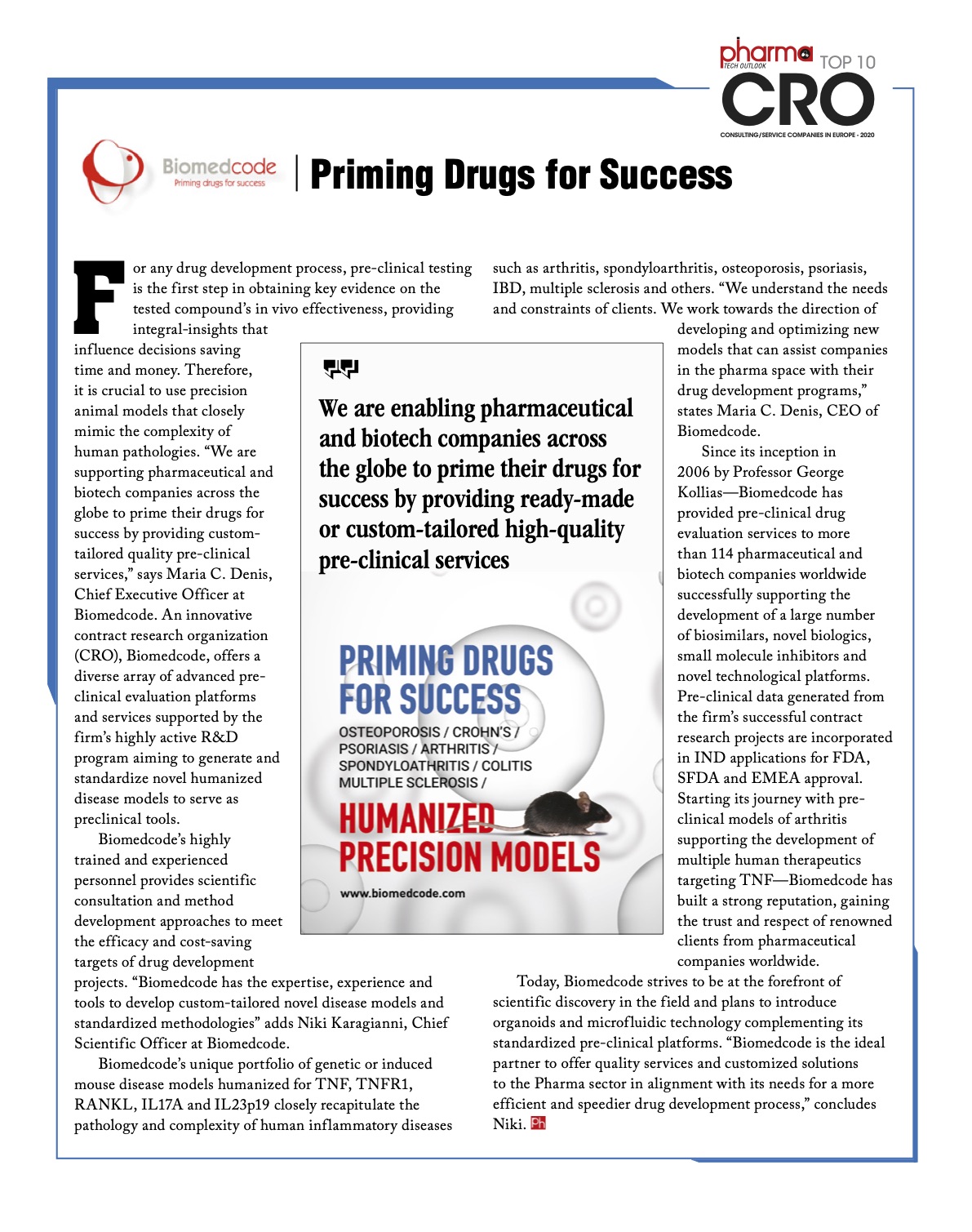

Biomedcode is excited to participate as one of the 63 European companies that have been selected to join the EUGATEWAY Healthcare and Medical Technologies Business Mission to Singapore on 8-11 December 2020. Due to the COVID-19 pandemic this will be a virtual event and we look forward to discussing with potential new partners and clients about future collaborations!

Pro-Infliximab provided equivalent therapeutic efficacy to Infliximab while maintaining mouse immunity against Listeria infection, leading to a significantly higher survival rate (71%) than that of the Infliximab treatment group (0%).
Published in PLoS Biology 2019 Jun 13;17(6):e3000286. doi: 10.1371/journal.pbio.3000286.

Biomedcode is pleased to announce that, the T2EDK program -Spondylitis Evaluation Platform via non invasive Imaging Application tools (SEPIA)- initiated in collaboration with the developer of novel breakthrough imaging systems company BIOEMTECH, has been financed by the European Union and Greek national funds through the operational program Competitiveness, Entrepreneurship and Innovation under the call RESEARCH-CREATE-INNOVATE. SEPIA will combine the efforts of two innovative companies aiming to develop precision imaging tools for the evaluation of the severity of Spondyloarthritis pathology developed in the TgA86 established mouse model of the pathology. Integration of these imaging tools in the sprondyloarthritis drug efficacy evaluation platform will support the preclinical development of novel therapies for Spondyloarthritis.

Targeting TNF-α as a treatment modality has shown tremendous success, however there are several limitations associated with the current anti-TNF-α biologic drugs including: immunogenicity, life-threatening infections, resistance to treatment, complexity of manufacture and cost of treatment. Ubah et al. report the in vivo efficacy of novel anti-TNF-α formats generated from molecular engineering of variable new antigen receptors (VNARs), originally derived from the immune system of an immunized nurse shark.
Published in Frontiers in Immunology 2019 Mar 22;10:526. doi: 10.3389/fimmu.2019.00526.


